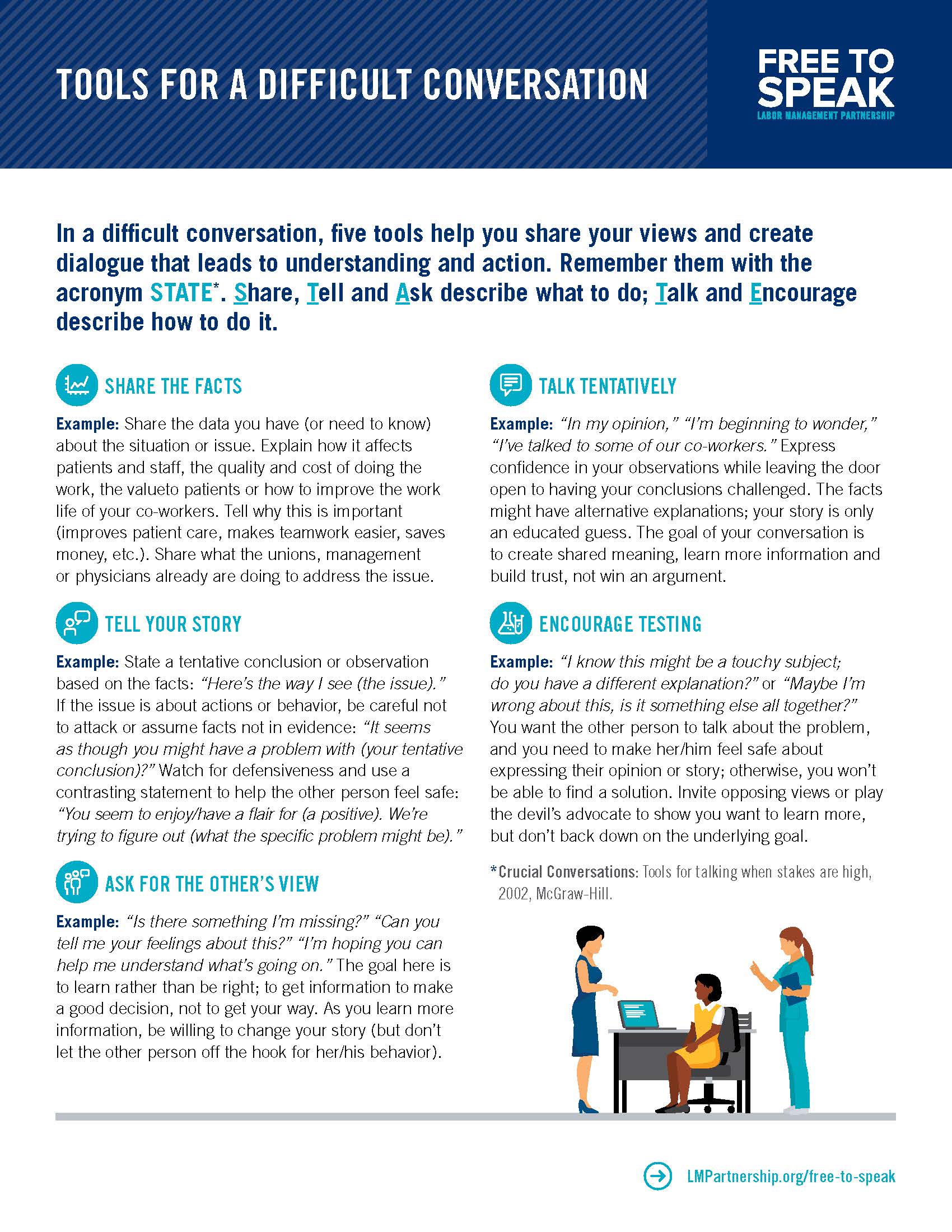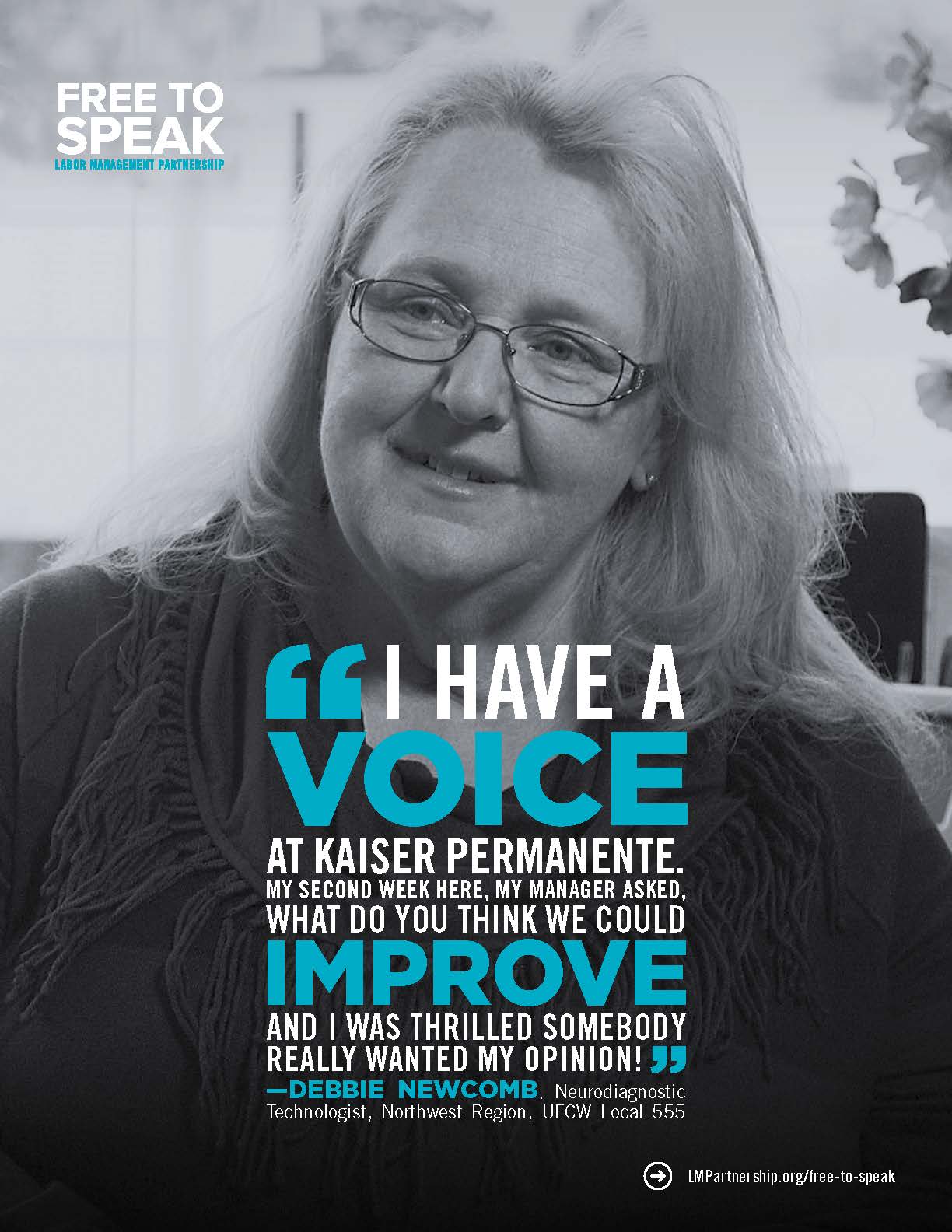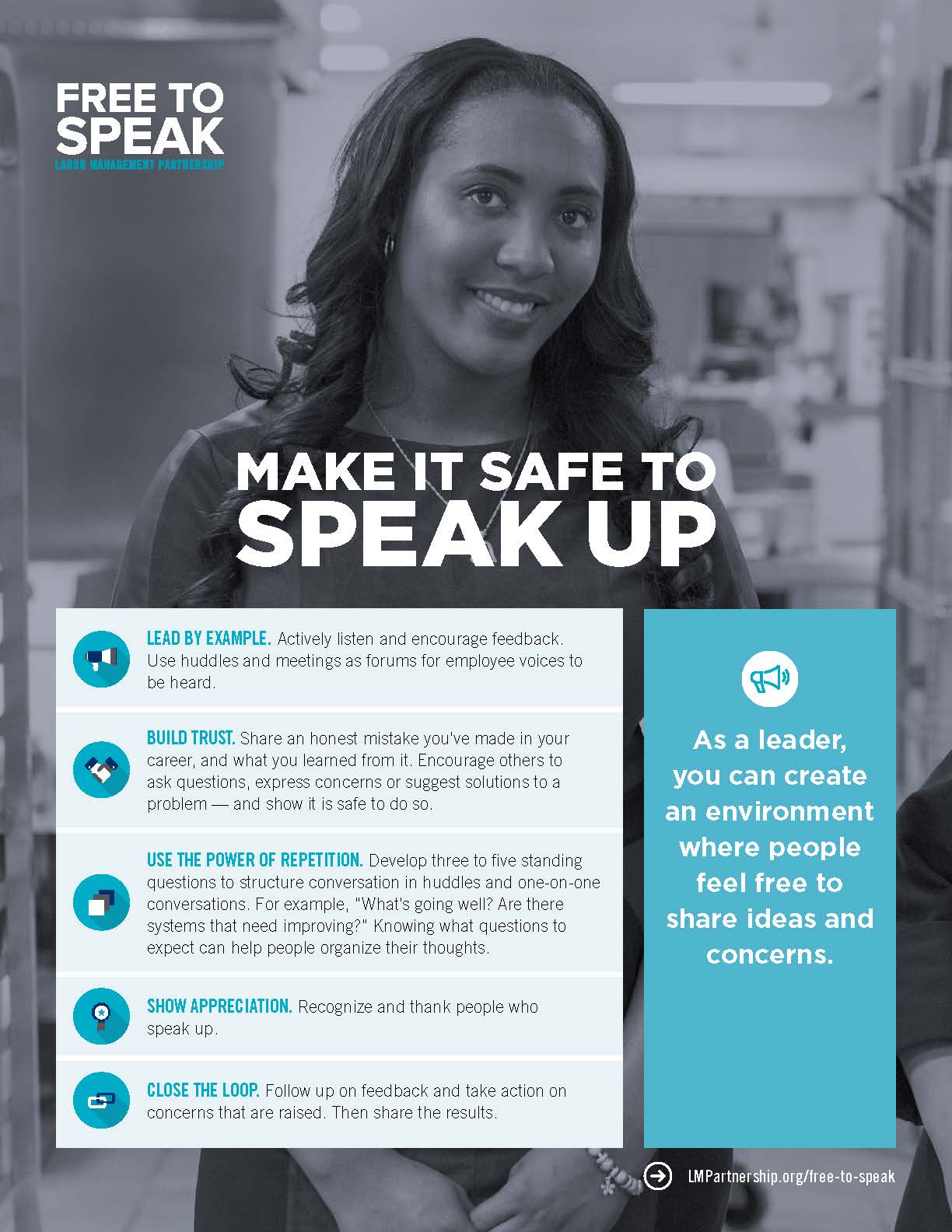Employees who feel free to share their ideas and concerns help keep our patients safe and make Kaiser Permanente a better place to work. Managers can help team members feel comfortable speaking up by creating a “psychologically safe” work environment—one where no one is afraid they will be embarrassed, rejected or punished for speaking up. Here are four tips from supervisor Nee Tang, Pharm.D., Ambulatory Care Pharmacy, West Los Angeles, on how to help workers make their voices heard.
Follow up and take action. “When an employee brings up something, look for the solution and be accountable. Make sure things are done. Having that accountability is really crucial to employees.”
Be authentic. “Having a manager who is open-minded and who truly, genuinely wants to create a safe environment for everybody, that’s the key.”
Be patient and persistent. “In the beginning, people may not be as comfortable speaking out. But once they see we’re coming every month no matter what [to do peer safety rounding], they’re speaking out. We’re really getting the equipment that is needed and reminding everyone about the proper ergonomic positions. People know we’re serious about making an environment that is safe for everyone.”
Find people who want to share their passion with others. “Another key is to have people who are passionate. Angie Chandler, our labor co-lead, is really passionate about ergonomics. I’m passionate about eating healthy. We have another employee who is passionate about exercise. Everybody wants everyone to be safe and healthy and to work well together. We’re passionate about what we do and want to spread that to everybody.”



